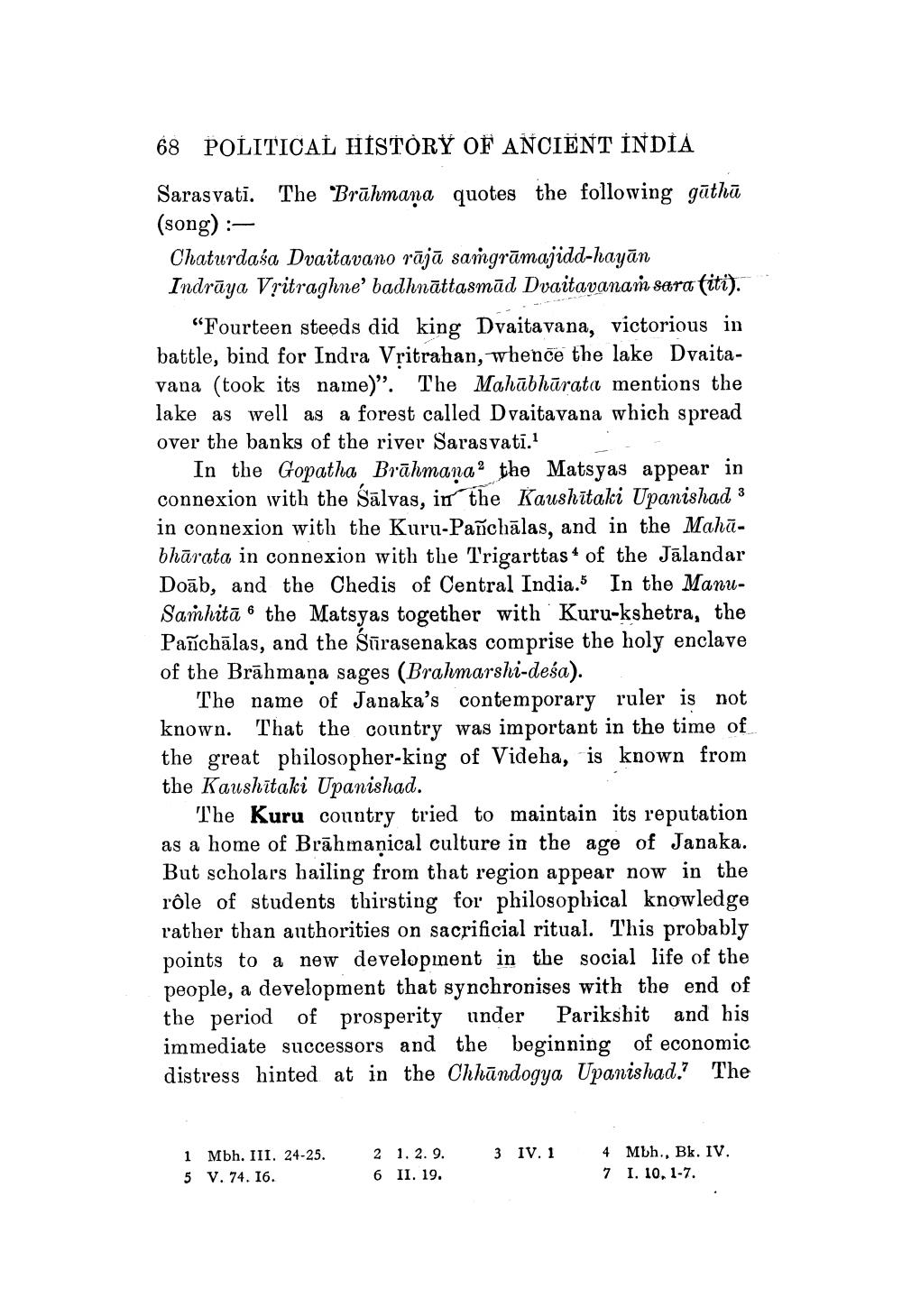________________
68 POLITICAL HISTORY OF ANCIENT INDIA
Sarasvati. The Brahmana quotes the following gāthā (song):
:
Chaturdasa Dvaitavano rājā saṁgrāmajidd-hayān Indraya Vritraghne' badhnattasmad Dvaitavanam sara (iti).
"Fourteen steeds did king Dvaitavana, victorious in battle, bind for Indra Vritrahan, whence the lake Dvaitavana (took its name)". The Mahabharata mentions the lake as well as a forest called Dvaitavana which spread over the banks of the river Sarasvati.1
In the Gopatha Brahmana the Matsyas appear in connexion with the Salvas, in the Kaushitaki Upanishad 3 in connexion with the Kuru-Panchalas, and in the Mahabharata in connexion with the Trigarttas of the Jalandar Doab, and the Chedis of Central India.5 In the ManuSamhita the Matsyas together with Kuru-kshetra, the Pañchalas, and the Surasenakas comprise the holy enclave of the Brahmana sages (Brahmarshi-deśa).
The name of Janaka's contemporary ruler is not known. That the country was important in the time of the great philosopher-king of Videha, is known from the Kaushitaki Upanishad.
The Kuru country tried to maintain its reputation as a home of Brahmaṇical culture in the age of Janaka. But scholars hailing from that region appear now in the rôle of students thirsting for philosophical knowledge rather than authorities on sacrificial ritual. This probably points to a new development in the social life of the people, a development that synchronises with the end of the period of prosperity under Parikshit and his immediate successors and the beginning of economic distress hinted at in the Chhandogya Upanishad." The
1 Mbh. III. 24-25.
5
V. 74. 16.
2 1. 2. 9.
6
II. 19.
3 IV. 1
4 Mbh., Bk. IV.
7 I. 10, 1-7.




